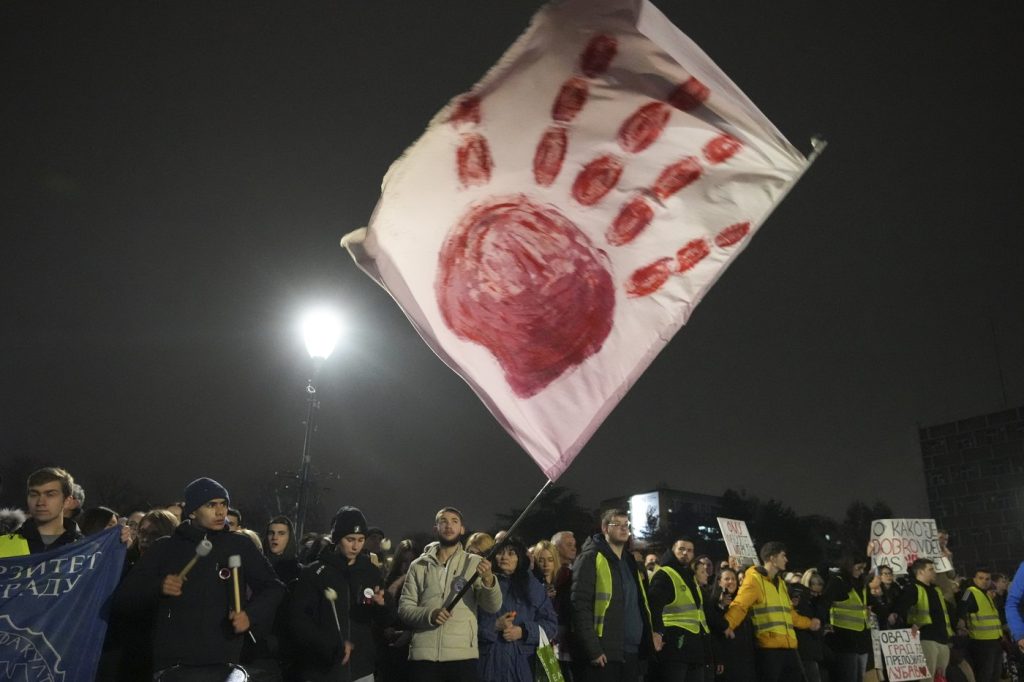KRAGUJEVAC, Serbia (AP) – On Saturday, Serbia's Statehood Day is set to witness contrasting rallies organized by striking students and supporters of President Aleksandar Vucic. The student-led protest, part of a nationwide anti-corruption movement, follows a tragic incident that occurred on November 1, when a concrete canopy at a railway station in Novi Sad collapsed, resulting in the deaths of 15 people.
The protest in the central industrial city of Kragujevac is anticipated to draw tens of thousands of participants who are not only seeking justice for the victims of the canopy disaster but are also demanding measures to combat endemic corruption and adherence to the rule of law. Kragujevac was chosen as the rallying point because of its historical significance; in 1835, residents declared a new constitution aimed at limiting the authority of the Ottoman rulers, marking a pivotal moment in Serbian history that is now commemorated on Statehood Day.
In the days leading up to the protest, students converged on Kragujevac, receiving enthusiastic support from local residents who greeted them with food and drinks, expressing hope for political change. Organizers conducted marches across the nation, encouraging broad participation in the rally, demonstrating a grassroots effort to address longstanding grievances against the government.
Simultaneously, in Sremska Mitrovica, President Vucic is expected to deliver a speech steeped in nationalist rhetoric, claiming that Western interests are plotting to unseat him through destabilization efforts, which he suggests could threaten the unity of the country. Serbian authorities are reportedly busing thousands of Vucic supporters from various regions, including Bosnia, to attend this counter-rally, and some opposition activists may try to disrupt this influx.
The anti-graft movement represents a significant challenge to Vucic, who has maintained a firm control over Serbian politics for more than a decade. His party, the Serbian Progressive Party, has faced accusations of undermining democratic freedoms, silencing dissent, and influencing electoral outcomes, as noted by international observers.
The canopy tragedy has catalyzed widespread dissatisfaction with Vucic's government, positioning university students at the forefront of the anti-corruption uprising. Their passion and creativity have resonated with many citizens disillusioned by the political elite. In pursuit of accountability, the students have vowed to continue their protests until their demands are fully met.
In response to the protests, Vucic has oscillated between accusing the students of foreign collusion and attempting to placate them with concessions, asserting that he has already addressed their requests. However, during a recent trip to a Serb-controlled area of Bosnia, he reiterated concerns regarding an alleged foreign conspiracy aimed at overthrowing his administration, although he provided no substantive evidence for such claims.
Vucic's visit to Bosnia is also seen as an effort to reinforce a sense of Serbian solidarity, harkening back to the tumultuous events of the 1990s that contributed to the devastating conflicts in the region, resulting in significant loss of life and displacement.










